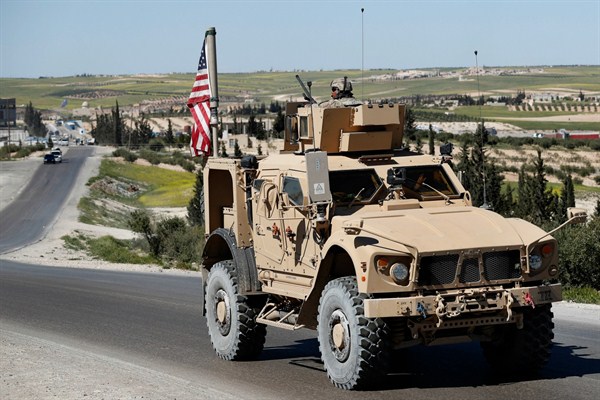U.S. President Donald Trump has promised that Syria, Russia and Iran will pay a price for the latest use of chemical weapons against civilians in Syria’s brutal civil war. But if he does decide to carry out punitive strikes for the chemical attack in the rebel-held Damascus suburb of Douma, they will do little to satisfy advocates for a more forceful U.S. involvement on humanitarian grounds. Nor are they likely to deter future outrages, if the missile strike Trump ordered last year after a previous use of chemical weapons is any indication.
More importantly, they will leave unresolved the geopolitical challenges that have bedeviled the U.S. approach to the Syrian civil war since it began in 2011. As that conflict has evolved, those challenges have broadened to encompass the U.S. approach to the region writ large.
The question confronting the U.S. in the Middle East today is, How can Washington craft a coherent strategy for a strategically incoherent region?

